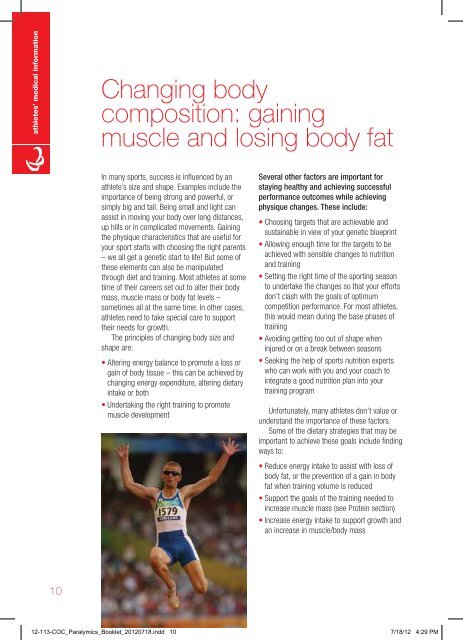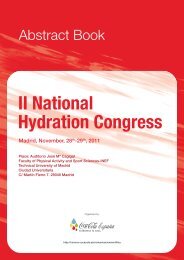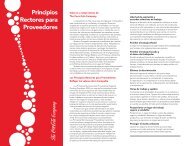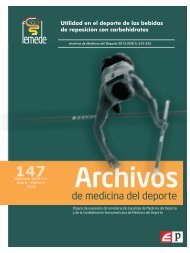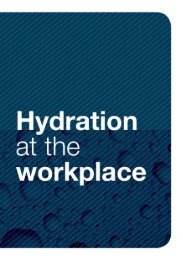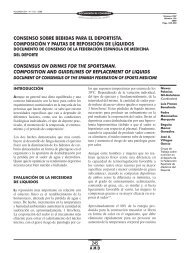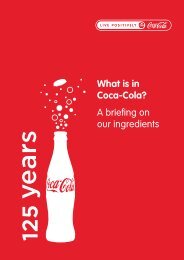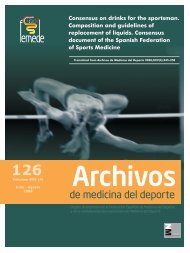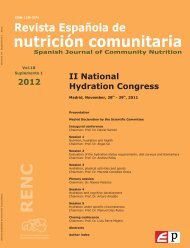athletes' medical information - Coca-Cola
athletes' medical information - Coca-Cola
athletes' medical information - Coca-Cola
You also want an ePaper? Increase the reach of your titles
YUMPU automatically turns print PDFs into web optimized ePapers that Google loves.
athletes’ <strong>medical</strong> <strong>information</strong><br />
Changing body<br />
composition: gaining<br />
muscle and losing body fat<br />
In many sports, success is influenced by an<br />
athlete’s size and shape. Examples include the<br />
importance of being strong and powerful, or<br />
simply big and tall. Being small and light can<br />
assist in moving your body over long distances,<br />
up hills or in complicated movements. Gaining<br />
the physique characteristics that are useful for<br />
your sport starts with choosing the right parents<br />
– we all get a genetic start to life! But some of<br />
these elements can also be manipulated<br />
through diet and training. Most athletes at some<br />
time of their careers set out to alter their body<br />
mass, muscle mass or body fat levels –<br />
sometimes all at the same time. In other cases,<br />
athletes need to take special care to support<br />
their needs for growth.<br />
The principles of changing body size and<br />
shape are:<br />
Altering energy balance to promote a loss or<br />
gain of body tissue – this can be achieved by<br />
changing energy expenditure, altering dietary<br />
intake or both<br />
Undertaking the right training to promote<br />
muscle development<br />
Several other factors are important for<br />
staying healthy and achieving successful<br />
performance outcomes while achieving<br />
physique changes. These include:<br />
Choosing targets that are achievable and<br />
sustainable in view of your genetic blueprint<br />
Allowing enough time for the targets to be<br />
achieved with sensible changes to nutrition<br />
and training<br />
Setting the right time of the sporting season<br />
to undertake the changes so that your efforts<br />
don’t clash with the goals of optimum<br />
competition performance. For most athletes,<br />
this would mean during the base phases of<br />
training<br />
Avoiding getting too out of shape when<br />
injured or on a break between seasons<br />
Seeking the help of sports nutrition experts<br />
who can work with you and your coach to<br />
integrate a good nutrition plan into your<br />
training program<br />
Unfortunately, many athletes don’t value or<br />
understand the importance of these factors.<br />
Some of the dietary strategies that may be<br />
important to achieve these goals include finding<br />
ways to:<br />
Reduce energy intake to assist with loss of<br />
body fat, or the prevention of a gain in body<br />
fat when training volume is reduced<br />
Support the goals of the training needed to<br />
increase muscle mass (see Protein section)<br />
Increase energy intake to support growth and<br />
an increase in muscle/body mass<br />
10<br />
12-113-COC_Paralymics_Booklet_20120718.indd 10<br />
7/18/12 4:29 PM


